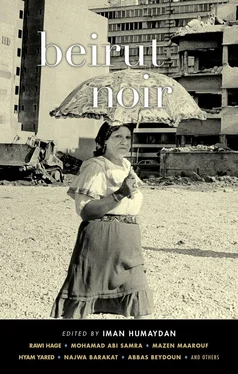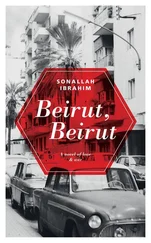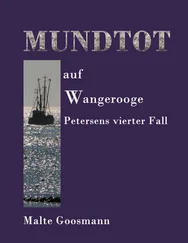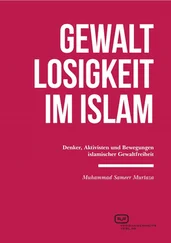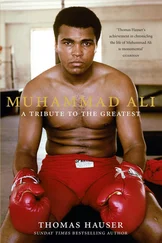Abu al-Izz, advise me on a good coffin made of oak. The Red Oak Tree, as the comrades call the Party. Not just an old piano box, like the one you play. I don’t deserve either of these. As a lover, I am a dog. I love with no right to, and without hope. Abu al-Izz, I’ll kill you if you relate this to anyone.
When Comrade Abu Khalid informed me that she was returning to France, I was like someone hit by a stray bullet: a bit of time passes before he reacts or responds, and only after he sees the hot blood spurting out does he cut off the flow. “Comrade Jalal’s wife will travel tomorrow via the Damascus airport with the help of the French embassy, which will take care of everything. You will stay with him. She recommended this when she learned she was leaving because she really trusts you and finds you effective. We made the decision that she will travel abroad because things are getting worse. Asad is going to reach Beirut, we’re organizing our resistance, and there’s no point in her staying and distracting us with minor issues.”
When I left the center I was only thinking about one thing: her staying despite the bombings, her comrade husband, the Party, Abu Khalid, my grandparents, my uncle, Philomena, God, traditions, laws, and the war.
“Hello, George,” she said in Arabic, opening the door to me, revealing what I’d told her a few days earlier about my real name, a one-time disclosure.
Jalal greeted me from the living room, “Welcome, Abu Sakhr,” though he surely already knew my real identity.
“Will you eat supper with us?”
I lowered my gaze when she looked at me. “I’m tired. I don’t know, perhaps it’s an epidemic this summer.”
“Okay... but come on in and relax a little bit.”
“No, I prefer to go to sleep early.”
“Then wait a moment for me,” she said. I reached out my hand and she passed me a sheet of paper. “This is my address and my telephone number in Paris if you want to abandon your wars before they’re over and complete your studies or work in better circumstances. I will do what I can to organize things for you, and Jalal will help you if you ask him to. I’m leaving early and I won’t see you tomorrow.” She grabbed my hand. “I’ll miss your company, thank you for the lovely companionship.”
Jalal stood up and said, “See you tomorrow.”
What do you want, Abu al-Izz, dear comrade investigator? Now at the end of another glass, you can close the report for which you’re the only witness. I’ve closed my life on an open identity. I lost the war, the Party, and my passion. I won’t submit my resignation and you won’t submit your official report. I’ll return tomorrow to take care of Jalal, the apartment, the party, and the roads. Exhausted, I’ll carry the burden of a long rupture with myself.
In my eyes open to blackness, suddenly
the last sky that I’ve seen awaits,
taking me toward the abyss,
the uselessness of a traveler without a destination,
a singer who suddenly lost his soul,
a toy car lost in the congested streets of the one playing with it,
only madness emerges from loneliness.
Originally written in Arabic.
Part III
Waiting for Yesterday
The Thread of Life
by Hala Kawtharani
Bliss Street
At nine thirty the autumn creeps slowly toward Beirut’s night. The first hospital looks like a hotel with no guests, and the second one looks like hell. People are crammed into it, running toward life, breathing heavy, hanging on to its edges, to its fingernails, to sparks flying from it, and life shows them no mercy. She hurries to flee, her sarcastic laugh rumbles, and she becomes more talkative. She doesn’t stop or stumble. Life goes on. It also happens that it stops suddenly. That occurs right away, after a huge explosion goes off in the narrow Beiruti streets, between ugly residential buildings and the gaps between them, gaps that used to be houses in the old days, unpreserved history whose value no one knows and no Beirutis care about.
Only minutes after the explosion, people are already wondering how the crime was perpetrated — from what was used to the details of its planning. They partake once more in a new horror movie. Was it a car bomb or a bomb planted in a tree or a handbag left in some prearranged spot? The place becomes famous, it becomes the location where life paused. The place becomes a hero in the eyes of the television cameras and petty politicians. Life ends outside the place where so many human lives were ended. Beirut suffers from a brief spell of amnesia, afflicted by both short- and long-term memory loss. The tape is wiped clean from beginning to end, and it starts all over again.
Dr. Rashid leaves the hospital. He had parked his car in a spot across from the political leader’s house, near one of the area’s three hospitals. This is the mansion-hospital to which it’s difficult to move emergency cases, because the leader lives here and the roads around his house are always closed. Dr. Rashid knows that the leader’s dogs eat breakfast at seven in the morning, then arrive in the neighborhood at exactly nine o’clock. The people in the area set their clocks by the leader’s dogs’ schedule. They sniff rocks and humans, walls and cars, shop entrances and buildings. The leader’s life is always in danger. And the dogs are among those “responsible” for protecting it.
Sitting in his car, Dr. Rashid decides to walk instead. That way he won’t have to worry about searching for a parking spot later. He is not in the mood to deal with traffic. He walks. Strange feelings of fear overtake him. For the first time, he experiences the horror he sees in the eyes of his patients. He never used to be afraid, and didn’t pay attention to his patients’ fear. His “professionalism” prevented him from reacting to their psychological pain. Experience also prevented him from having an emotional response. Observing large numbers of patients in their last stages of life, patients bidding life farewell, clinging to each breath, light, and voice. He sees young mothers saying goodbye to their children, fathers trying — after their last, incomprehensible words — to keep their children away from their final moments on earth. None of these scenes disturbed him before. What was happening? Why was he afflicted by this oversensitivity right now? How can he prevent his tears from showing? How can his eyes swallow them up before others see them? Who afflicted him with this reaction? What has he been injected with? What dream has changed him? What vision?
He walks down May Ziadeh Street. He’d fallen in love with the name of the street even before he was convinced to buy his apartment. It is near the hospital and close to his heart as well. It’s important to him to fall in love with the places where he lives and rests. He’s had enough of the sufferings of the hospital, the smells of disease and death. Thus, it’s important that his apartment be comfortable, that he can find the life in it that he’s been losing in the hospital.
He walks under the jasmine plants that extend over the walls of the Asseily Building. Gibran Khalil Gibran Street intersects with the street named for that other Lebanese literary figure, May Ziadeh. May and Gibran never met in real life. They only met on paper, in letters they exchanged. Gibran’s attempts to meet May weren’t good enough. They never met. His desire to meet her didn’t equal her desire to meet him. But the two streets meet. There are jasmine plants on Gibran Street too. Dr. Rashid loves jasmine; he often boasts that he lives in the only jasmine zone left in Beirut. It is also a security zone, as they have started to call closed streets around the houses of political leaders who fear for their lives. These zones strangle the people of the country a thousand times a day. They’ve transformed the movement of cars in the city into a trap out of hell, or one long nightmare. He remembers that he was reading about battles on the nearby street named for Michel Chiha, the writer and intellectual. His leftist cousin was killed there by a bullet to his abdomen. He was walking between Michel Chiha, May Ziadeh, and Gibran Khalil Gibran.
Читать дальше
